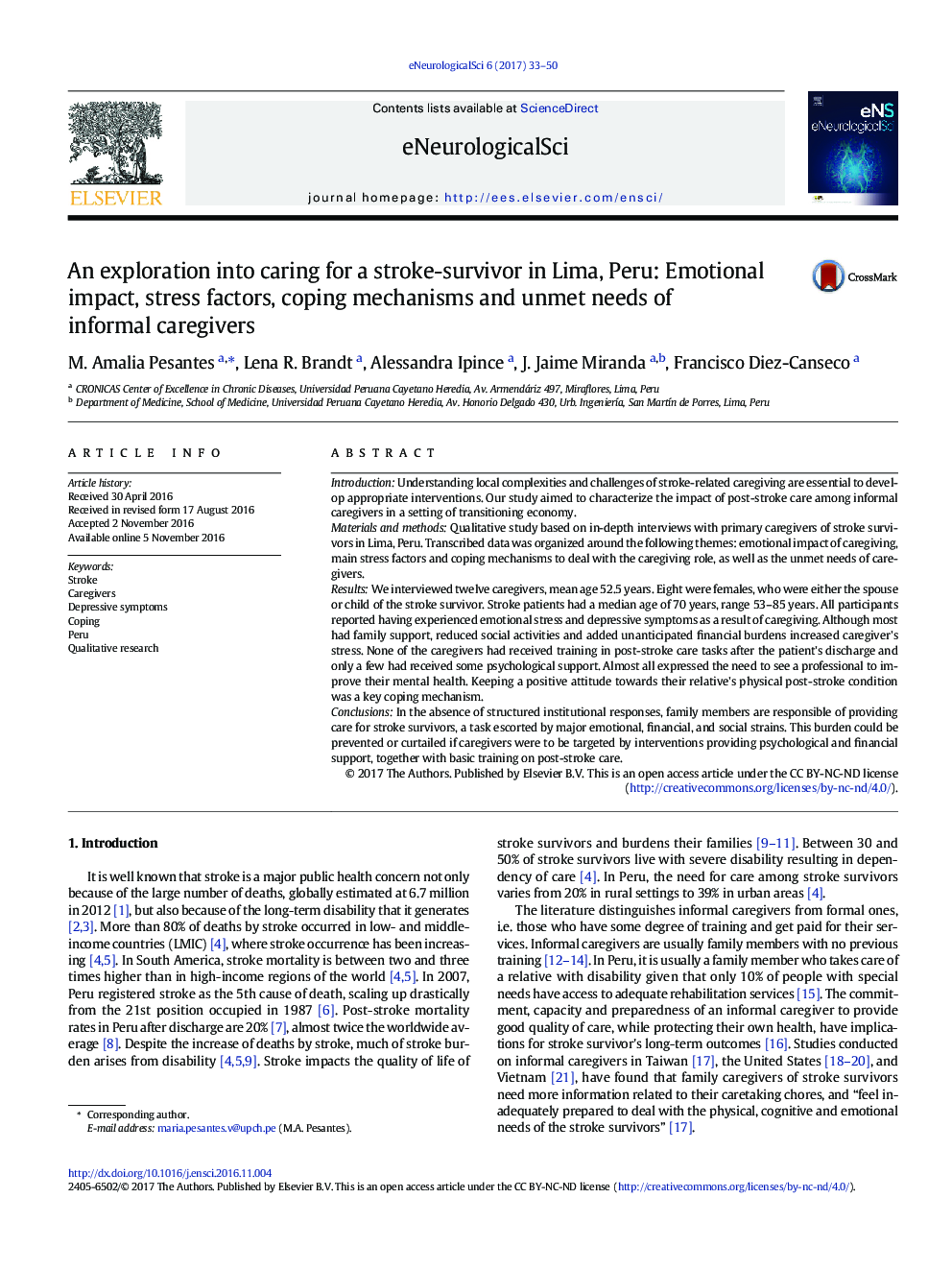| کد مقاله | کد نشریه | سال انتشار | مقاله انگلیسی | نسخه تمام متن |
|---|---|---|---|---|
| 6009694 | 1579800 | 2017 | 18 صفحه PDF | دانلود رایگان |
- Understanding complexities of stroke and caregiving are needed to develop interventions.
- Caregiving adds unanticipated financial burdens in those who provide care.
- None of the caregivers received training in post-stroke care tasks.
- Only a few caregivers received some sort of psychological support.
- Keeping a positive attitude towards their relative's physical post-stroke condition was a key coping mechanism.
IntroductionUnderstanding local complexities and challenges of stroke-related caregiving are essential to develop appropriate interventions. Our study aimed to characterize the impact of post-stroke care among informal caregivers in a setting of transitioning economy.Materials and methodsQualitative study based on in-depth interviews with primary caregivers of stroke survivors in Lima, Peru. Transcribed data was organized around the following themes: emotional impact of caregiving, main stress factors and coping mechanisms to deal with the caregiving role, as well as the unmet needs of caregivers.ResultsWe interviewed twelve caregivers, mean age 52.5Â years. Eight were females, who were either the spouse or child of the stroke survivor. Stroke patients had a median age of 70Â years, range 53-85Â years. All participants reported having experienced emotional stress and depressive symptoms as a result of caregiving. Although most had family support, reduced social activities and added unanticipated financial burdens increased caregiver's stress. None of the caregivers had received training in post-stroke care tasks after the patient's discharge and only a few had received some psychological support. Almost all expressed the need to see a professional to improve their mental health. Keeping a positive attitude towards their relative's physical post-stroke condition was a key coping mechanism.ConclusionsIn the absence of structured institutional responses, family members are responsible of providing care for stroke survivors, a task escorted by major emotional, financial, and social strains. This burden could be prevented or curtailed if caregivers were to be targeted by interventions providing psychological and financial support, together with basic training on post-stroke care.
Journal: eNeurologicalSci - Volume 6, March 2017, Pages 33-50
